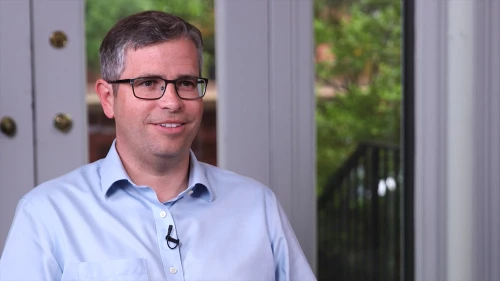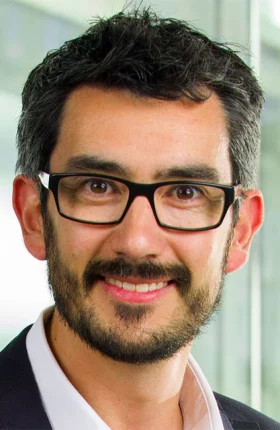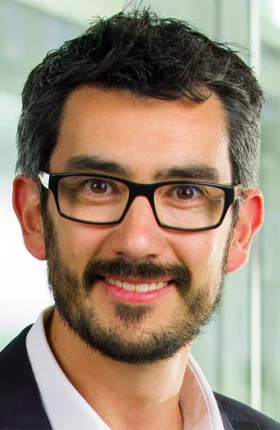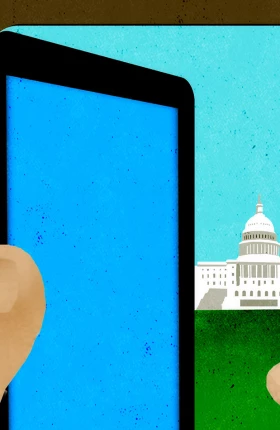
Governments around the world are grappling with the rapid pace of technological advancement—with varying degrees of success. In the US, the drive to bring the government into the digital age is being led by Matt Cutts who became Acting Administrator of the US Digital Service in early 2017. Cutts headed the webspam team at Google for years and is now well into the second year of what started as a three-month stint at USDS. For Cutts, the attraction to his current role is easily explained: given the reach of the federal government, he is able to have more impact on people’s lives than he could in virtually any other job in technology.
Cutts’s team aims to leverage the power of digital to improve the way Americans access government services. And while he acknowledges that there’s quite a bit of room for improvement in government, he sees impressive strides being made. Cutts sat down recently with Sharon Marcil, a BCG senior partner and the leader of the firm’s Public Sector practice in the Americas, to discuss the challenges and opportunities facing the USDS—and why he’s not quite ready to leave. Edited excerpts from their conversation follow.
About Matt Cutts
About Matt Cutts
At a Glance
Born in Moorehead, Kentucky, 1972
Education
1998, Master of Science, University of North Carolina at Chapel Hill
1995, BS, University of Kentucky
Career Highlights
2017 to present, acting administrator, US Digital Service
2000–2016, a variety of roles, including head of webspam team, Google
What was your biggest surprise coming into US government from Google?
On the upside, the fact that there are extremely capable people. These are people who are very passionate, who understand why things are important, and who work very hard to get the work done.
On the downside, it is surprising sometimes that the tools are not always where you would hope that they would be. If you're coming from a modern tech company, you expect to be able to open up a video conference. I have seen some agencies where you have to call a person to schedule a telephone call. And if you go over half an hour then that person gets on the line and says, "Okay, I have to hang up on you all now." The fact that that's not completely automatic is a little bit of a surprise. It feels like it should be. But all in all, it is surprising that people are able to get so much done, sometimes even when the tools are lacking.
What are some of the biggest accomplishments for USDS during your time here?
We have made it easier for veterans to know where they stand in terms of disability claims appeals. We've made it safer for soldiers and easier for them to move themselves and their families across the country. We've made it easier for students to figure out which college to go to and for small businesses to participate in the federal contracting ecosystem.
One of the things I'm proudest of as the administrator is just making sure that people can get their work done. The US Digital Service is like a relay race. People come in for a limited tour of duty, at most two years or four years, typically shorter than that, and then they hand the baton off to someone else. Over the last year and a half or so, most of the leadership of the US Digital Service has turned over—which is expected. What is fascinating is that, despite that turnover, we're still able to help deliver the vital services the American people expect from their government.
What do you see as next on the frontier? What would you like to accomplish as you look forward?
There's so many things to do. It should be as easy to use a government service as it is to access services in the private sector. For example, if you use a banking site and you log in, you are instantly able to see what your balances are and all the services that are available to you. But if you're a veteran and you log onto a veterans website, you do not immediately see what benefits you receive and information on what other benefits you might be eligible for. It would be really helpful for people to have that level of personalization.
Also, all government services should work on phones. And they should work with screen readers so that disabled or blind users can access those services.
If you think more broadly, I think that the US Digital Service can also help on things like procurement, making the federal government a better buyer. And it can help with things like making forms easier to fill out. The US government has over 24,000 forms. So if you can make that process a little less onerous, that's just a little less friction in everyday people’s lives.
As you look around the world, what governments exhibit the best practices in terms of delivering digital services?
I think first off you probably have to think of Estonia. Their e-Residency program is really interesting. As a smaller country, they are able to be a little more nimble, a little more agile. So they can iterate and try out things very quickly.
If you look at the United Kingdom, the government digital service there, they have an interesting approach where they actually look at the purse strings. So for any government contract above a certain size, they have people with digital technical expertise weigh in. They can ask, "Have you thought about this constraint? Have you thought about this particular problem?"
At the state level there are also interesting things happening. The California Department of Technology is focused on improving digital services. There's Mass.gov, the digital services site for Massachusetts. We were talking with someone from the State of Utah recently. They can control the purse strings on IT-related projects—which can help avoid some major problems before those projects start. There's actually a lot of innovation going on in government now.
You come from Google, which has invested significantly in AI. How do you think AI will impact the US government?
Let me start with an example. Think about someone who is checking a form manually to make sure that all the right fields are filled in and that they meet the right requirements. That is not a very fun job for an analyst.
But what if you can take the easy part of the work away and highlight the areas that really need to be paid attention to? Maybe that employee is handling an adjudication for asylum. Maybe they're doing something that is helping a small business. If you can highlight where a person is most useful, that's something that's really going to be incredibly valuable.
I think there's a ton of upside. There are ways AI can actually have real impact, helping people lead better lives and get their jobs done faster. That can make the federal government more effective and more efficient.
USDS has been very effective at recruiting top talent. What sort of pitch can you make to people who are considering coming into the US government?
You can have more impact right now joining the US Digital Service than you can have at almost any large technology company in the Valley. There are always startups—but startups can also be a risk. We have $100 million projects—nonpartisan projects that can help large numbers of people—where just a few employees can make the difference. Where three or four engineers, three or four project managers, two or three designers can make the difference between that project succeeding or failing.
So if you ask “Where are the places that I can have an impact and try to actually make a difference for people?”—the US Digital Service is one of the best places you could possibly do that.




